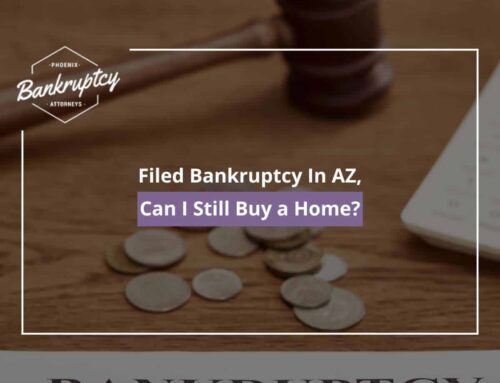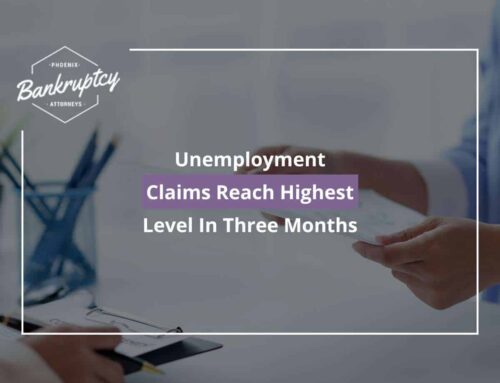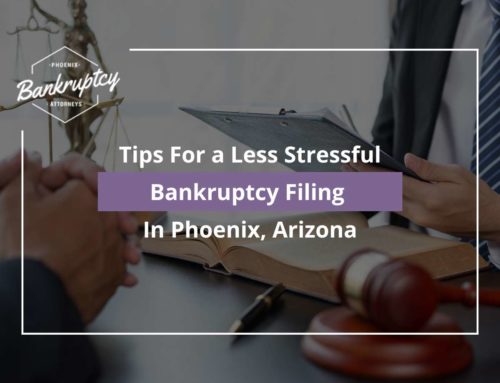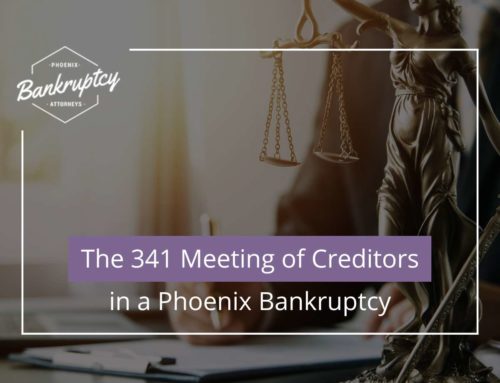What Is The Difference Between Offer In Compromise & Bankruptcy?
Millions of Americans were struggling with the pandemic, which has only exacerbated that problem. As special pandemic protections for those struggling with debt begin to expire, it’s time to start planning your financial strategy post-COVID. Depending on your specific circumstances, you may be eligible for one, a few, or several debt relief options. They will all offer different benefits and disadvantages, so it’s important to fully understand all of them so that you can make an educated decision. If you need further assistance in determining your best course of action, contact our firm for your free debt evaluation.

What Is An Offer In Compromise (OIC)?
An Offer in Compromise allows you to settle your debts to the IRS for far less than you owe. The most common type is a Doubt as to Collectibility Offer in Compromise. This is essentially proving to the IRS that you won’t be able to pay off your debts before they expire, so it’s in everyone’s best interests to settle now for a lower sum. The savings in an Offer in Compromise can be tremendous. The IRS may settle tax debts in an Offer in Compromise for tens of thousands of dollars less than their full balances.
What Is Bankruptcy?
Bankruptcy is a legal method of debt relief meant to protect both debtors and creditors. To declare bankruptcy, the debtor must file a petition with the court that provides a detailed look at their financial situation. A government attorney, known as a trustee, will be appointed to the case. The trustee will review the petition and make sure there aren’t any mistakes or hidden assets that could be sold to pay creditors.
There are two main types of bankruptcy meant for individuals with debt in the United States. The first is Chapter 7 bankruptcy. This type of bankruptcy liquidates and discharges most forms of unsecured debt. Credit cards, medical bills, personal loans, and more will be wiped away in a process that generally takes 4 to 6 months. To keep people from abusing the bankruptcy system, Chapter 7 is only available to those under certain income levels. There are also limits to how much property you can keep in a Chapter 7 bankruptcy, known as exemptions. If you have more equity in your assets than state exemptions allow, the trustee may sell the asset and pay your creditors with the proceeds. If your income is too high, or filing Chapter 7 would put your home or vehicle at risk, Chapter 13 may be a better solution.
Chapter 13 is often referred to as a wage earner’s bankruptcy. This is because unlike Chapter 7, there aren’t rigid income restrictions in Chapter 13. Chapter 13 bankruptcy reorganizes debts into a payment plan based on what the debtor can afford. The amount the debtor can afford is referred to as disposable monthly income. This is calculated by subtracting mandatory expenses from the debtor’s average monthly income. If the debtor can pay off their first three categories of debt- legal fees, secured debts, and priority debts- then their unsecured debts may be discharged without full repayment in the plan. Chapter 13 provides several other opportunities that are unique from Chapter 7.
Contact an Experienced Phoenix bankruptcy attorney if you’d like to discuss how bankruptcy could change your specific financial situation. Our bankruptcy staff offers free consultations and look forward to assisting you.
Bankruptcy Vs. Offer In Compromise
It’s impossible to say whether an offer in compromise or a bankruptcy is better- this will depend on your specific circumstances. One of the biggest factors will be the amount of debt you owe to the IRS. If your debts are primarily tax-related, an offer in compromise could be an effective way to address your debt issue. However, a debt compromise with the IRS won’t do you much good if you don’t owe the IRS any money. If your debts mostly come from other sources, like credit cards, medical bills, repossession deficiencies, etc., bankruptcy may be a better option for you. Oftentimes, tax debt is just a symptom of a larger debt problem.
Having tax debt doesn’t automatically make an offer in compromise the better solution. Bankruptcy can still help you address a debt problem with the IRS. Tax debts are dischargeable in bankruptcy if they meet a few requirements. First, only debts for at least 3 years ago can be discharged. Second, the taxes must have been filed for at least 2 years. The debts must have been assessed at least 240 days before the bankruptcy petition is filed. Lastly, there can’t be fraud associated with the tax filings. If your tax debts meet these requirements, they are dischargeable in Chapter 7 bankruptcy. They will also be treated with the lowest category of debts, like credit cards and medical bills, in Chapter 13 bankruptcy.
Filing Bankruptcy & Then An Offer In Compromise
While a bankruptcy is pending, the IRS will not consider an Offer in Compromise. This is important to keep in mind, because a Chapter 7 bankruptcy lasts approximately 4 to 6 months, and a Chapter 13 bankruptcy lasts 3 or 5 years. This option is usually used when a person has several types of debts, including tax debts, that aren’t eligible for discharge in bankruptcy. In many cases, it is preferable to file bankruptcy before the offer in compromise. This is because while a bankruptcy is pending, the debtor is protected from garnishment, repossession, etc. by their creditors due to the Automatic Stay. If a debtor pursues an offer in compromise first, their creditors may still come after them while the offer is under consideration.
Can An Offer In Compromise Help Me Avoid Filing Bankruptcy In Arizona?
An Offer in Compromise can allow you to clear away thousands of dollars in debt, without some drawbacks of bankruptcy. You will lose all of your credit cards in bankruptcy, and possibly even your doctors. You won’t be able to finance a home for at least 2 years after filing bankruptcy. A Chapter 7 bankruptcy will stay on your credit for ten years, and a Chapter 13 bankruptcy will stay on your credit for seven years. This may reduce your chances of success in future applications for lines of credit, and may even be considered on job applications in certain industries. If the majority of your debt is to the IRS, an Offer in Compromise can help you avoid some of bankruptcy’s disadvantages.
Call a Phoenix Bankruptcy Attorney Today For Your Free Consultation
Do you still need help deciding which method of debt relief is right for you? Go to the professionals- our experienced bankruptcy attorneys will help you determine whether a bankruptcy or an offer in compromise would be a better option for you. We can also explain the benefits and drawbacks of the separate bankruptcy chapters, so you are fully prepared if you do decide to file. Believe it or not, this type of quality legal guidance probably works with your budget. You may even qualify for a post-filing payment plan starting at $0 down!
To learn more about which option is right for you, as well as bankruptcy qualification estimates, schedule your free consultation with one of our Phoenix debt relief lawyers today. Call (480) 263-1699 or use our online form to schedule.
PHOENIX BANKRUPTCY ATTORNEYS





